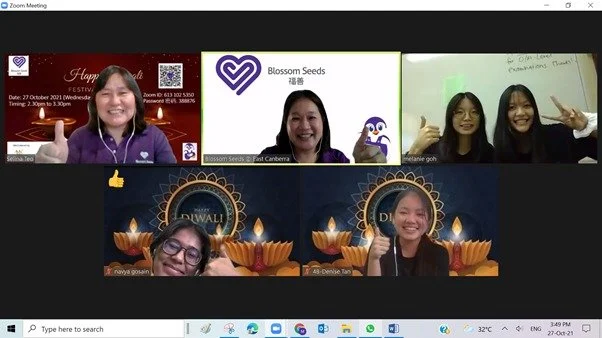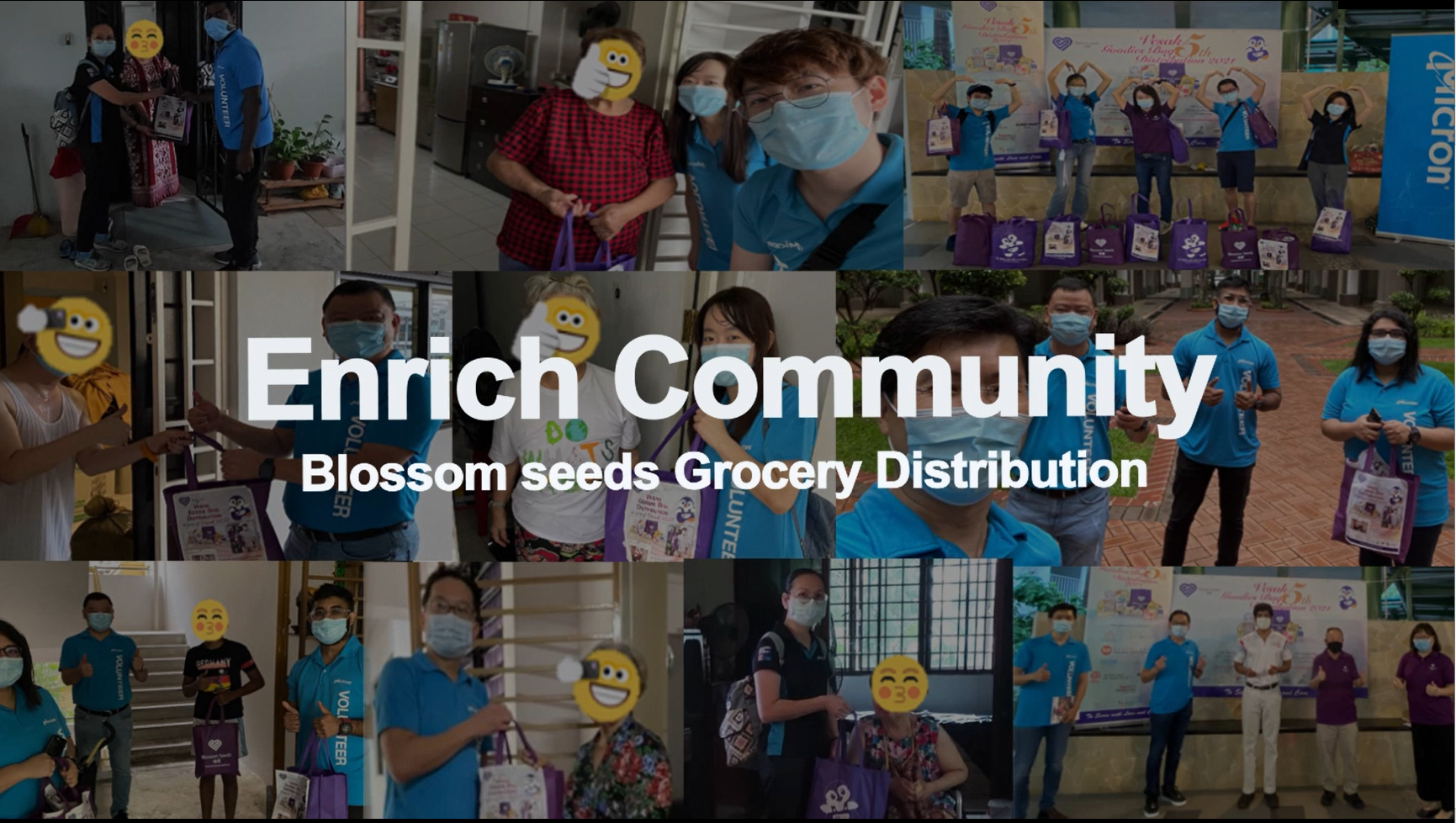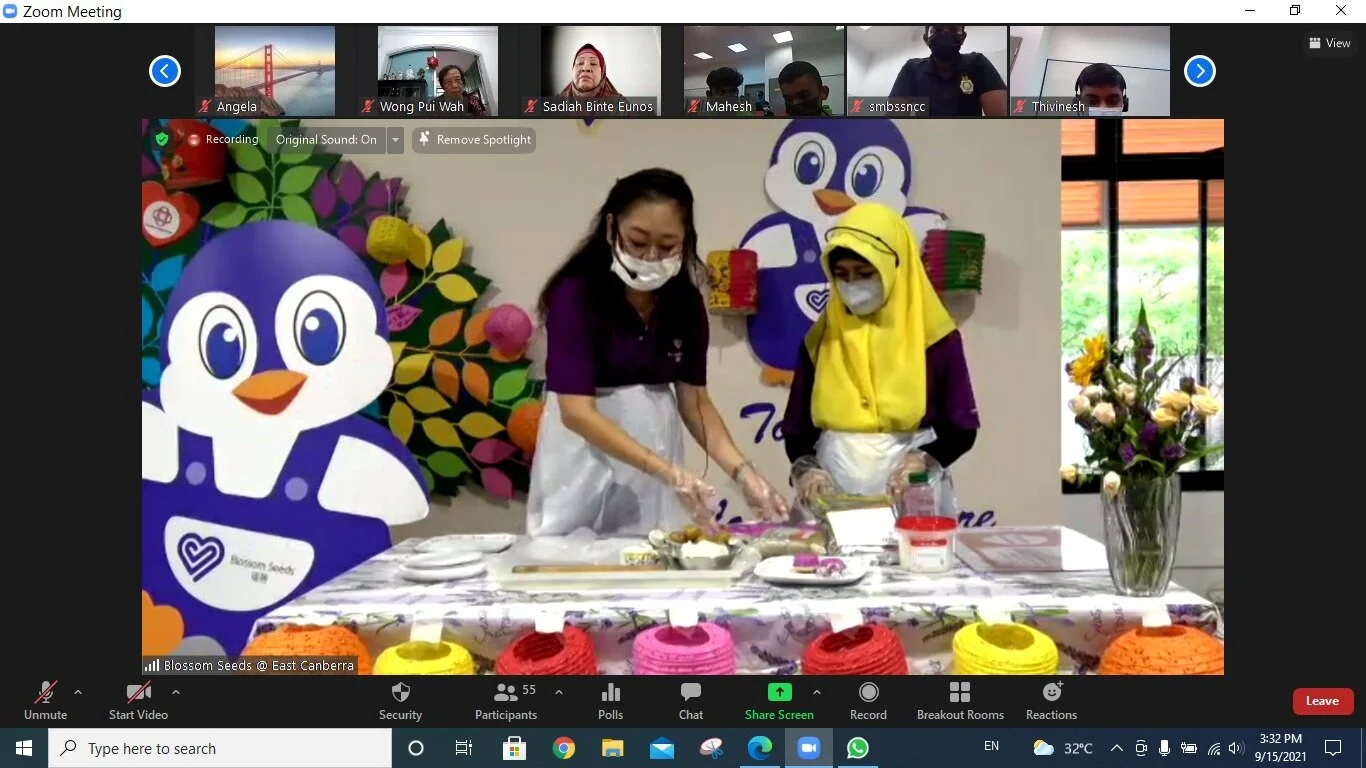Views from Hong Kong
The following article is contributed by So Ting Yi, Queenie, 2nd year Social Work student, from City University of Hong Kong. She was attached to Blossom Seeds as part of her overseas internship programme in July 2019.
****************************************************************************
Although I only spent three days with Blossom Seeds in July 2019, I was able to understand more about the resources and facilities that existed in Singapore supporting the elderly community. There was also similarities and differences between the centres in Singapore and Hong Kong.
On the first day, I visited Kampung Admiralty (NTUC), which was the first centre we had been to. Blossom Seeds doesn’t provide day care services unlike the former but instead, focuses on providing activities and creating opportunities for elderly to bond and reaching out to the neighbourhood Seniors. The operational structure of both centres are very different in nature.
I was able to talk with the staff in knowing more about Singapore’s current social welfare system and their current social problems. I realized Hong Kong and Singapore have the same social problem regarding which is an ageing population. However, the approaches are slightly different for both countries. In my opinion, Singapore has a comprehensive system in taking care of different aspects, such as health, medical, entertainment, mobility and helping the elderly search for their purposes in life. For example, I was surprised that Blossom Seeds encourages Seniors to volunteer and contribute back to society. While in Hong Kong, from what I heard there aren’t many elderly volunteers. Most of the volunteers are adults or teenagers.
In Hong Kong, although the system may not be extremely comprehensive, there are also elderly benefits that may not exist in Singapore. For example, any elderly who is 65 years old or above is able to enjoy a low transportation fee of only HKD2 to travel anywhere in Hong Kong, in order to encourage the elderly to step out from their homes. In general, both countries have very similar approaches, as both have day care centres and activity centres for the elderly. Also, benefits such as medical vouchers also exist. Besides, by distributing goodie bags in the nearby area of Yishun, I was able to observe the living environment of the elderly there. It’s also very similar with Hong Kong, as I can see that most of the elderly are living alone or with a helper. However, in terms of the environment, the condition is much cleaner and spacious than the living environment for the elderly in Hong Kong.
During the second and third day, I was able to do hospital visits by taking the medical escort bus. I believe the hospital visits provided to the elderly was very considerate and helpful to the elderly as some of them may have trouble in mobility. This is also an aspect that Hong Kong’s system may lack of, as medical transport is not very common in Hong Kong.
Furthermore, I was able to visit a hospital* in Yishun. It was very close to nature, surrounded by plants and fishes in the pond. Also, the setting of the hospital was painted with colourful drawings and health-related messages. There are also many open areas and windows, which break the stereotypes of a ‘traditional, white-colored and reserved’ hospital. Basically, all of the hospitals in Hong Kong belonged to the traditional type, therefore it’s my first time seeing this hospital with a new concept. I personally believed this hospital is very nice and beneficial to the clients here. It’s a good reference for Hong Kong to follow as well. From the hospital visit, I was also aware that diabetes and obesity are the most common problems that Singaporeans have, as there’s a clinic specifically for these problems. For Hong Kong, although obesity isn’t very serious, the problem of diabetes among elderly and adults are also very common, which is similar with Singapore.
On the last day, there was a training session with a pro-bono counsellor. The counselling skills taught there had a different approach from the counselling courses I had learnt in my school. While the session teaches how to act in certain realistic situations with clients, such as how to related and react to client’s grief, our school focuses on theories and some basic skills in doing counselling. I was able to observe two different approaches, which was a refreshing experience. I believed that the different learnings and approaches I had absorbed in these 4 days will be helpful towards my journey as social worker in the future.
*Khoo Teck Puat Hospital
















